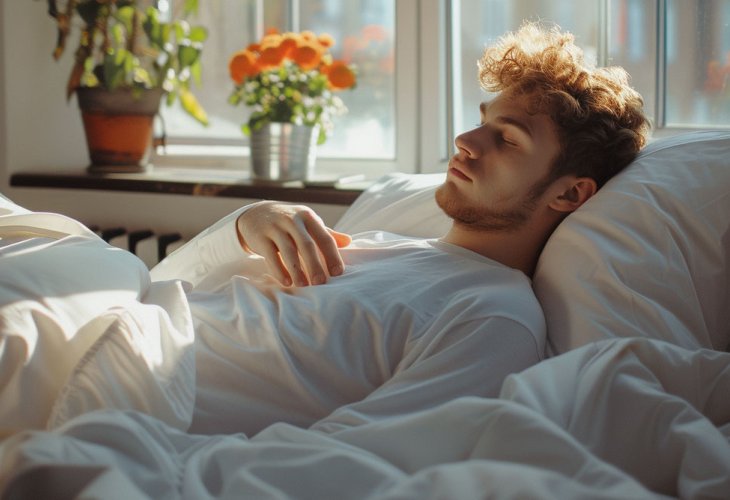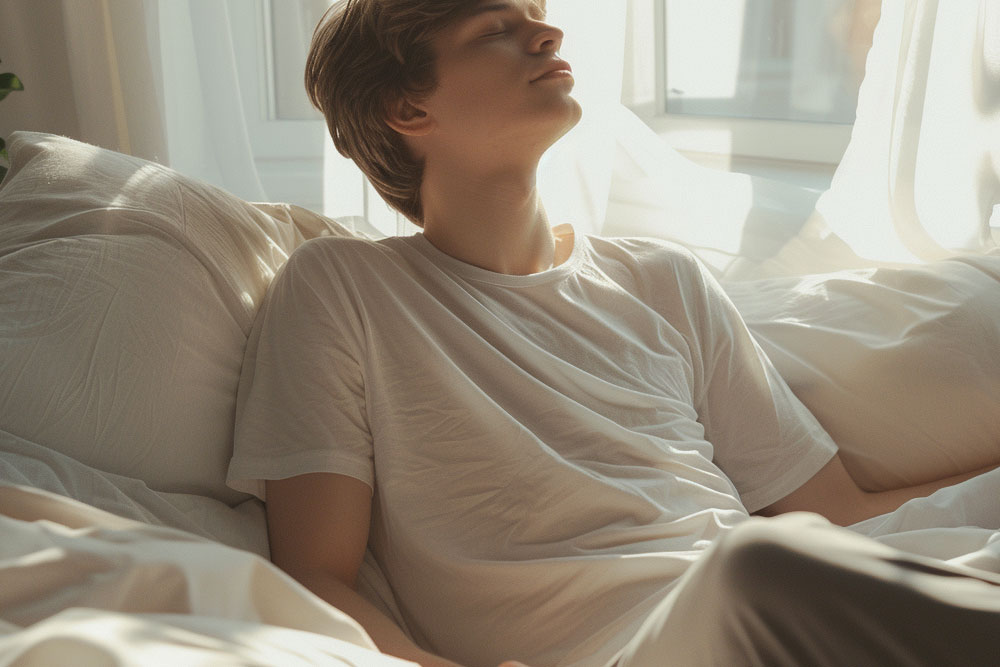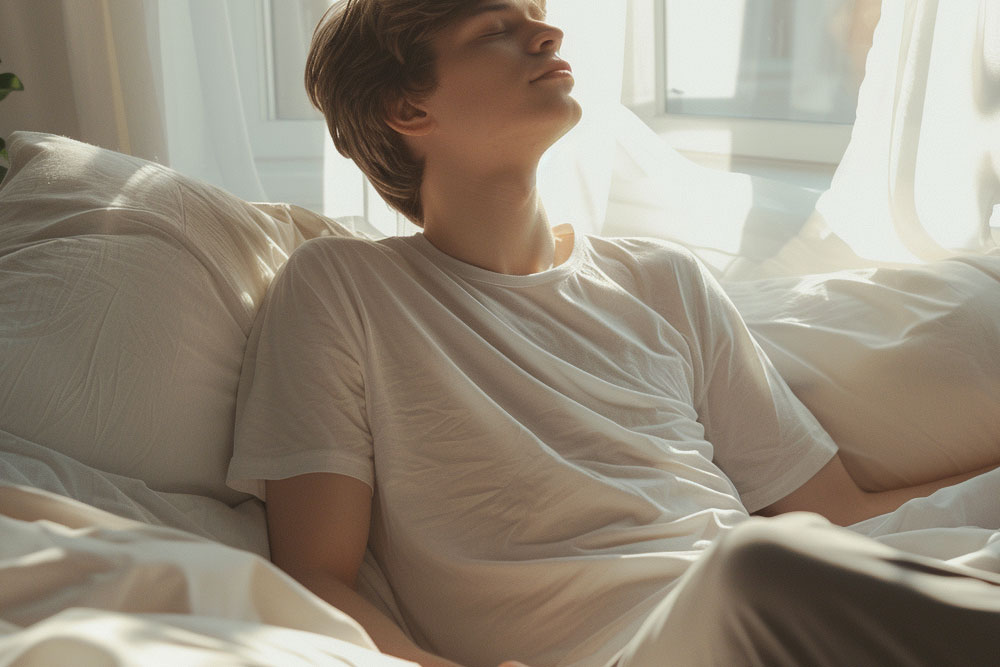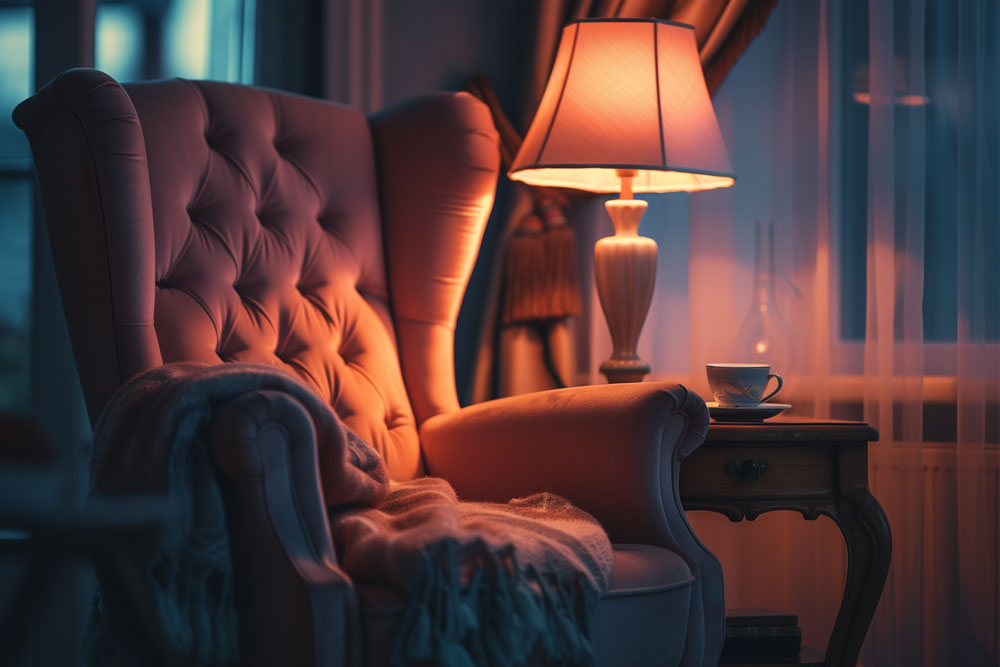5 Nighttime Rituals for Waking Up Refreshed
Feel like you're getting enough sleep but still wake up tired? It might be your evening routine. Let's explore how to improve it.

We all know that quality sleep is crucial for our health and the proper functioning of our brain and well-being. Even if we're disciplined about getting 7-8 hours of sleep, there are days we wake up exhausted. Are there other factors affecting our sleep quality? We've investigated and come back with fascinating insights.
1. What time do you go to bed?
If there's one key takeaway from this article, it's to maintain a consistent bedtime. Try to go to bed and wake up at the same time every day. Your body will quickly adjust to the rhythm, making it easier to fall asleep. A 2014 study published in "Sleep" found that those who stick to a regular sleep schedule are healthier than those who don't. The research, conducted by a team from the University of Birmingham in the UK, analyzed sleep data from 2000 adults. It revealed that maintaining a regular sleep routine reduces the risk of chronic illnesses such as diabetes, heart disease, cancer, obesity, and depression. These individuals also reported improved cognitive function, mood, and energy levels.

2. What does your sleep environment look like?
Our bodies appreciate certain conditions for easy sleep. Create a comfortable sleep environment. Ensure your bedroom is dark and quiet. Sensitive to light? Use curtains or an eye mask. Sensitive to noise? Use earplugs. Provide your body with the right conditions, and it will thank you.


3. What do you drink before bed?
If you want quality, uninterrupted sleep – avoid drinking coffee in the evening. Caffeine and alcohol can disrupt sleep and lead to increased fatigue in the morning, according to a 2015 study in "Sleep Medicine". This research, by a team at Columbia University, examined caffeine intake effects on 48 healthy adults, finding that caffeine consumption before bed negatively impacts sleep quality and next-day functioning. Participants were given 300 mg of caffeine (about 2 cups of coffee) or a placebo (coffee-like drink) 3 hours before bed. Results showed caffeine consumers fell asleep slower, slept less, and experienced more sleep disturbances. It also linked pre-bed caffeine intake to poorer sleep quality, morning fatigue, and impaired cognitive function.

4. How do you unwind?
A calming and balancing routine about an hour before bed significantly boosts your chances of a long, uninterrupted sleep. Two hours before bed – dim the lights, have a calming beverage like herbal tea or warm milk with honey, and once you're in bed – read a book or Psalms right before sleeping. You'll notice the difference in the morning.

5. What are you thinking about?
Try to clear your head before bed. Adopt a nightly habit of jotting down the next day's tasks. Transferring your thoughts, plans, and tasks from mind to paper helps you head to bed more relaxed, with a "clear mind," and minimizes unnecessary thoughts that hinder falling asleep.
Have more tips on the topic? Share them in the comments.

